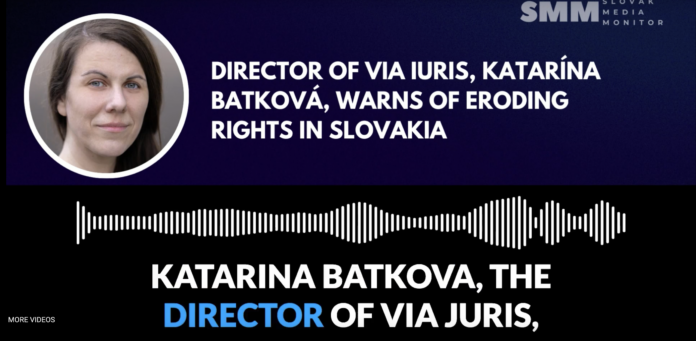Katarína Batková, director of Via Iuris, a leading Slovak NGO, has voiced deep concerns over recent legislative proposals. She highlights that the new “Lex Atentát” laws, introduced post-assassination attempt on PM Fico, recognize that misdemeanours can occur via electronic communication, requiring telecom operators to provide police with metadata, which breaches EU law.
Additionally, these laws mandate municipalities to ban public gatherings that might infringe on privacy, allowing police to impose fines on non-compliant municipalities. Batková also critiques amendments to the Freedom of Information Act, where requests can be dismissed if costs for “extraordinarily extensive information retrieval” aren’t paid. Moreover, she points out that the proposed Critical Infrastructure Act introduces “limited information,” restricting public access to state activities related to security and order.
She emphasizes that the anti-NGO law infringes on the right to association, as affirmed by the EU Court of Justice and the European Court of Human Rights. This law discourages foreign donations and mandates the disclosure of donors’ identities, violating privacy rights. Batková underscores that 60% of legislation is adopted through expedited procedures, limiting public comment periods to just seven days without justification, significantly restricting civic rights. She concludes by stressing the need for vigilance to protect Slovakia’s democratic order.







